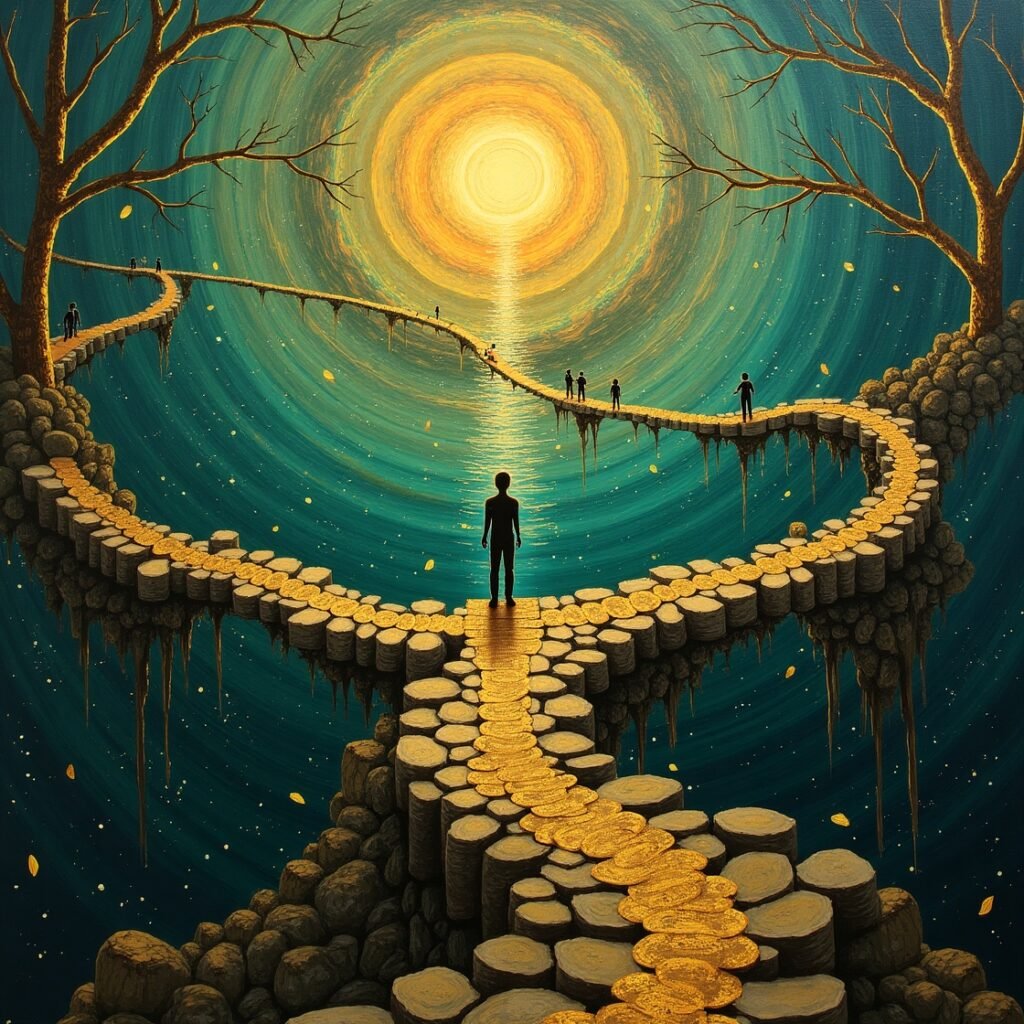
Introduction: When Freedom Feels Like a Trap
I couldn’t stop scrolling through Netflix the other day. There were hundreds and hundreds of choices: international choices, comedy, drama, thrillers, and romantic comedies. I gave up after forty-five minutes and watched nothing. Worse? I felt strangely empty and furious. Does that sound familiar?
We live in an age of abundance. Choices are everywhere, from streaming platforms and online shopping to dating apps and career paths. It’s supposed to be liberating. Moreover, this overload of options makes us less satisfied, anxious, and emotionally drained. THEY call this phenomenon “The Paradox of Choice.” In short, more isn’t always better.
What is the Paradox of Choice?
Coined by psychologist Barry Schwartz, the paradox of choice is that having too many options can cause regret, discontent, and decision paralysis. Freedom of choice is a positive thing. But when the number of options becomes overwhelming, it can have the opposite effect, making us stressed, confused, and even unhappy.
Key symptoms of choice overload:
- Overthinking: You spend too much time analyzing the pros and cons.
- Fear of missing out (FOMO): You worry about making the “wrong” choice.
- Regret: Even after deciding, you’re haunted by what you could have chosen.
- Decision fatigue: Making too many small decisions can leave you mentally drained.
Sound familiar? You’re not alone.
The Science Behind It: Why More Options Make Us Miserable
Look at the famous jam experiment by psychologists Sheena Iyengar and Mark Lepper. In a grocery store, they set up two tasting stations:
- One offered 24 flavors of jam.
- The other offered just 6.
Guess what happened? While more people were drawn to the 24-flavor table, only 3% bought a jar. Meanwhile, the table with just six options had a buy rate of 30%.
Too many options paralyze us. Our brains get overwhelmed. We question ourselves more. And in the end, we either don’t choose at all, or we make a choice and instantly regret it.
Modern Life = Infinite Scrolls, Endless Stress
Today, we’re surrounded by decisions:
- Dating apps: Swipe left, right, or just keep swiping forever.
- Career choices: Should you freelance, join a startup, go corporate, or become a digital nomad?
- Online shopping: Compare prices, ratings, colors, discounts… and still be unsure.
Even choosing what to eat has become a task. Zomato or Swiggy? Pizza or salad? Should you cook instead? That’s micro-decision fatigue — and it’s real.
The result? We start to feel disconnected from ourselves. Most of us lose the joy of commitment. We fear missing out on something “better,” even when what we have is already enough.
Personal Reflection: When I Chose Peace Over Possibility
Let me share a personal moment. A year ago, I juggled multiple interests: writing, marketing, psychology, finance, and more. Every week, I’d chase a new path. A new idea. A new “what if.” It felt exciting — until it didn’t.
I was mentally exhausted. Nothing was fulfilling anymore. So I sat down and decided to choose one direction and go all in for at least a year.
That’s when I committed to writing. It wasn’t a perfect choice. But it gave me clarity, consistency, and, most importantly, peace.
Why Limiting Your Options Can Be Liberating
It might sound counterintuitive, but constraints can free us. Here’s why:
- reduce stress. Fewer choices = fewer decisions = more mental space.
- improve satisfaction: When you commit to a decision, you stop second-guessing yourself.
- build momentum: You move forward instead of getting stuck in analysis mode.
- boost creativity: Boundaries inspire innovation. (Think haikus or minimalist art.)
Even major creators and entrepreneurs — from Steve Jobs to Mark Zuckerberg — famously simplified their daily choices (like wearing the same outfit daily) to save mental energy for what truly matters.
Satisficers vs. Maximizers: Which One Are You?
Another concept tied to the paradox of choice is the difference between
- Maximizers—people who try to make the perfect choice.
- Satisficers—people who choose something that’s “good enough” and move on.
Maximizers often end up less happy, even if their choice was technically better, because they keep thinking about what else they could’ve chosen. Satisficers, meanwhile, enjoy what they picked and move forward.
In a world of too many options, satisficing is a superpower.
Practical Tips: How to Simplify Your Choices
Here’s how you can apply this to your life today:
Set “choice limits.”
Only allow yourself 3-5 options. Whether it’s restaurants or career paths, eliminate options early.
Create decision rituals
Assign specific days for specific tasks. Like “Taco Tuesdays” or “Writing Wednesdays.” This reduces daily micro-decisions.
Trust your gut
You often already know what you want. Listen to that inner voice before you drown in external opinions.
Don’t chase the “perfect.”
Remember that perfect doesn’t exist — and “good enough” is often more than enough.
Reflect after choosing
Keep a journal. Write down how you feel a few days after a decision. You’ll see most choices don’t hold as much weight as you imagined.
Conclusion:
We’ve been persuaded that having more choices will make us happier. However, having too many options frequently results in emotional emptiness. We pause when we have too many options. We pause. We’re sorry. We also gradually lose our sense of orientation.
Minimalism is only one aspect of simplicity. It’s freedom of thought and emotional lucidity. It’s the guts to declare, “I’m fine with this being what I want.”
So maybe absolute freedom isn’t all about having it all; it means choosing less with more intention.
Check out my previous blog-https://jnanasya.com/how-to-heal-your-mind-with-psychedelics-responsibly/
Check out this video by-https://youtu.be/XILu7hxDr2w?si=stk3sLFJGW-QTWj0

Leave a Reply